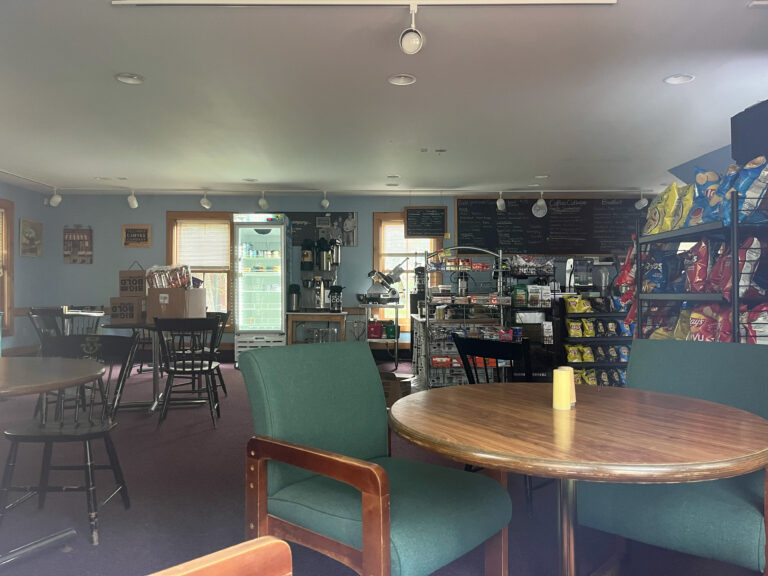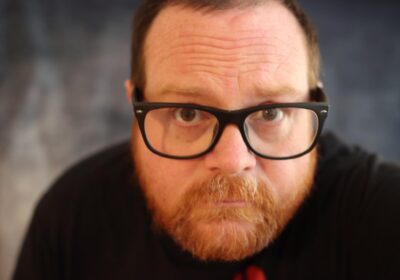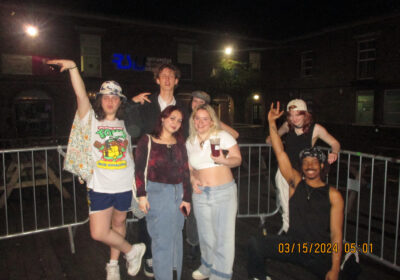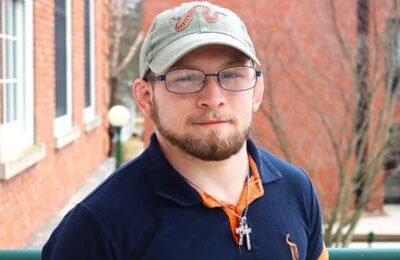Concerns over church and state

St. John the Baptist Church in Castleton has been at the center of recent concerns regarding the separation of church and state, and what political topics churches and other nonprofit organizations are allowed to publicly share their position on.
These concerns came after the Roman Catholic Church recently displayed signs reading “No Late-Term Abortion Vote NO on Article 22.” Article 22, also referred to in this story as Prop 5, is a proposed amendment to the Vermont State Constitution that states, “That an individual’s right to personal reproductive autonomy is central to the liberty and dignity to determine one’s own life course and shall not be denied or infringed unless justified by a compelling State interest achieved by the least restrictive means.”
The church is designated as a 501(c)3 which is, simply, the tax designation given to nonprofit organizations established for purposes that fall under charitable, religious, educational, scientific and more, according to the IRS.
This designation means that the organization is exempt from paying property taxes, and because of that, are not allowed to advocate for a specific political candidate or for a specific political party.
However, according to Rich Clark, professor and coordinator of the Political Science program at Castleton University, “political speech is favored speech, and (the Supreme Court) has always recognized churches’ right to speak out on matters of issues like this.”
While the church is not breaking any of the rules set forth by the IRS, some, like Amy Bremel, who is the Coordinator of Advocacy, Activism and Nonviolence Education and director of Peer Advocates for Change at CU, feel they are crossing a line.
“It’s a public commitment and comment that reflects a building and not necessarily that of the people inside,” Bremel said. “It is like the church is publicly showcasing their endorsement, yet the church is not able to vote … It kind of scares me that those in authority and power would dictate or publicly inform people how to vote and that only one way is the right way.”
CU student Denise Berger feels similarly.
“It’s like they’re using their position of power to influence (voters),” Berger said.
But legally, these concerns hold no weight.
“If you were to try to make a case against a church that they were violating their tax status as a religious organization by promoting this, you would have to show that it is a partisan issue … And I think that would be really, really difficult to make in Vermont,” Clark said, adding that Republican Gov. Phil Scott as well as Democratic leadership in the state have both endorsed the right to choose.
Last week, the church held an event to speak about Article 22 and its implications. Deacon Pete Gummere, who spoke at the event, feels a responsibility to educate people about the impacts the passage of the amendment might have.
“I think that the key in all this is that Prop 5 would work injustice on people, because I don’t think people know what all the implications are,” Gummere said.
During the session, Gummere and his wife, Mary Anne, spoke to their concerns not only over recognizing and protecting fetuses as unborn life, but also over the ways “reproductive autonomy” could be used to justify other things.
“It’s not just about abortion. It’s about a broader range of subjects, which need to stand all on their own, not under some vague heading of ‘reproductive justice’ because that can be very bad for society,” Gummere said.
Some of these concerns are the legalization of prostitution and allowing children to transition or make decisions about their gender identity or sexual health without their parents’ consent when they are still minors.
Also mentioned was the possibility of cases such as one from Ohio in which a man brought his girlfriend to court because she refused to have an abortion, which Gummere thinks could be seen as an infringement on that man’s reproductive autonomy if Article 22 passes, and ultimately hurt women in that position.
As for the question of whether or not these signs pressure voters, Gummere feels strongly about refraining from judgment and following “Christ-like dispositions” like forgiveness and doing unto others as you would have them do unto you.
“Personally, I try to approach things without labeling somebody as being evil. Or telling somebody, you know, ‘if you do that you’re going to Hell,’” Gummere said. “But there are people in a number of churches that do behave that way. I can’t.”
Additionally, Gummere pointed out that other 501(c)3s, like the ACLU Vermont and Planned Parenthood, have expressed their support of the article and not received the same kind of backlash.
However, Ayden Colon, a nursing major at CU, is concerned over how these signs, and their proximity to campus, may influence younger students in the community.
“There’s so many first-year students here that are just being influenced by everything they’re taking in. I just feel like signs like that, especially now, are just telling people that their bodies don’t matter, and that their bodies are something that can be controlled. And I really don’t think that’s true,” Colon said.
First-year student Kenny Myles shares Colon’s concerns over the impact it could have on the Castleton student body as a whole.
“I feel like the church should back off on this, less so for the concept itself but for how it could affect the college campus community,” Myles said. “That can cause a really big divide and that can mess up what we have here at Castleton.”
Junior Liliana Farrell, concerned over how this issue impacts young people in particular, is glad that the signs are up. But not for the reason you might think.
“I don’t agree with what they’re saying,” Farrell said. “But it’s letting us know where they stand and the climate of our community and, like, ‘are we safe in our community? Are the people around us wanting to protect our rights?’”








